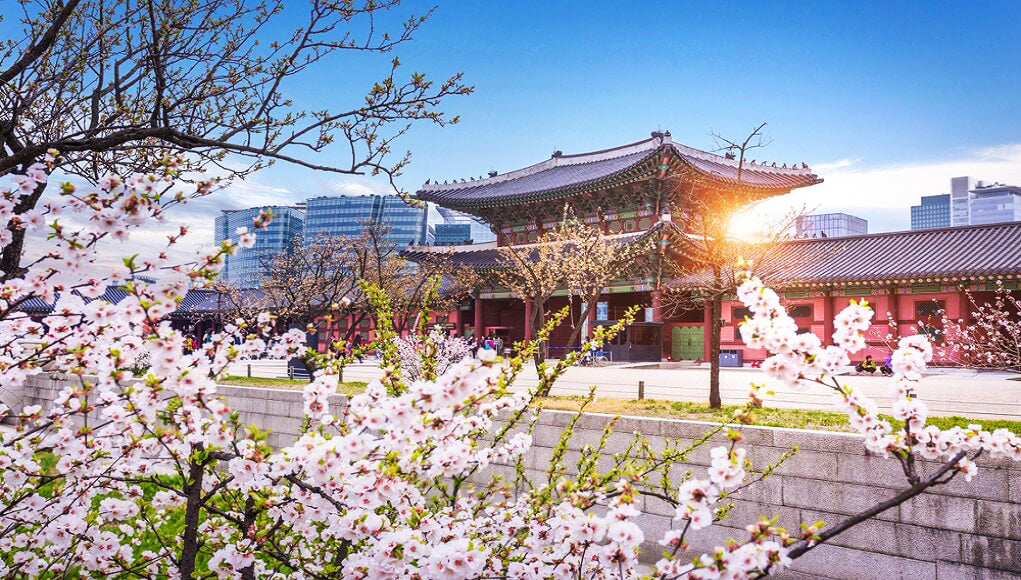South Korea’s global influence is overwhelming today. However, it was not always like this. Korea’s history is riddled with tremendous struggles and oppression until as recently as 1953. The Mugunghwa, South Korea’s national flower, is recognized for its hardiness and resilience. The plant is able to regrow despite harsh conditions and even when damaged; thus, it is the ideal symbol of triumph.
 The flower first gained recognition as early as the Gojoseon Era (Unknown - 108BC), when the mugunghwa was regarded as “a blossom from heaven”. An important figure in this time was King Dangun, who was said to have been born from the son of the supreme deity Hwanin and Ungnyo, a bear turned into a woman. King Dangun was often painted with mugunghwa, exemplifying its heavenly significance. Since then, the mugunghwa has made appearances in Korean history such as in the Silla Kingdom (57BC - 935AD) - known as the Country of Mugunghwa - and in the Goryeo Dynasty (918AD-1392AD), during which exemplary civil servants were rewarded with paper versions of the flower.
The flower first gained recognition as early as the Gojoseon Era (Unknown - 108BC), when the mugunghwa was regarded as “a blossom from heaven”. An important figure in this time was King Dangun, who was said to have been born from the son of the supreme deity Hwanin and Ungnyo, a bear turned into a woman. King Dangun was often painted with mugunghwa, exemplifying its heavenly significance. Since then, the mugunghwa has made appearances in Korean history such as in the Silla Kingdom (57BC - 935AD) - known as the Country of Mugunghwa - and in the Goryeo Dynasty (918AD-1392AD), during which exemplary civil servants were rewarded with paper versions of the flower.

Despite its importance, Korea was unable to adopt the mugunghwa as its nation’s symbol until after the Japanese colonization era (1910-1945). This was because freedom of expression outside of Japanese culture was stifled, with Korean citizens subject to horrendous acts of labor and mortification. In protest of their subjugation, Koreans planted hundreds of the flowers as an emblem of their aspiration for independence. It wasn’t until after Korean Independence that the mugunghwa was appointed as the national flower.
Nowadays, South Korea is globally recognized as an emerging leader in entertainment, pop culture, skincare, food - most notably Kbbq, and electronics. The mugunghwa remains an ever-present reminder that this success and prosperity was earned over time through hard work, grit, and resilience.
Freshly released for Summer ‘20 is our Mugunghwa Pocket tees, printed on soft garment-dyed tees. Available in colorways charcoal, emerald, and light blue.





Leave a comment